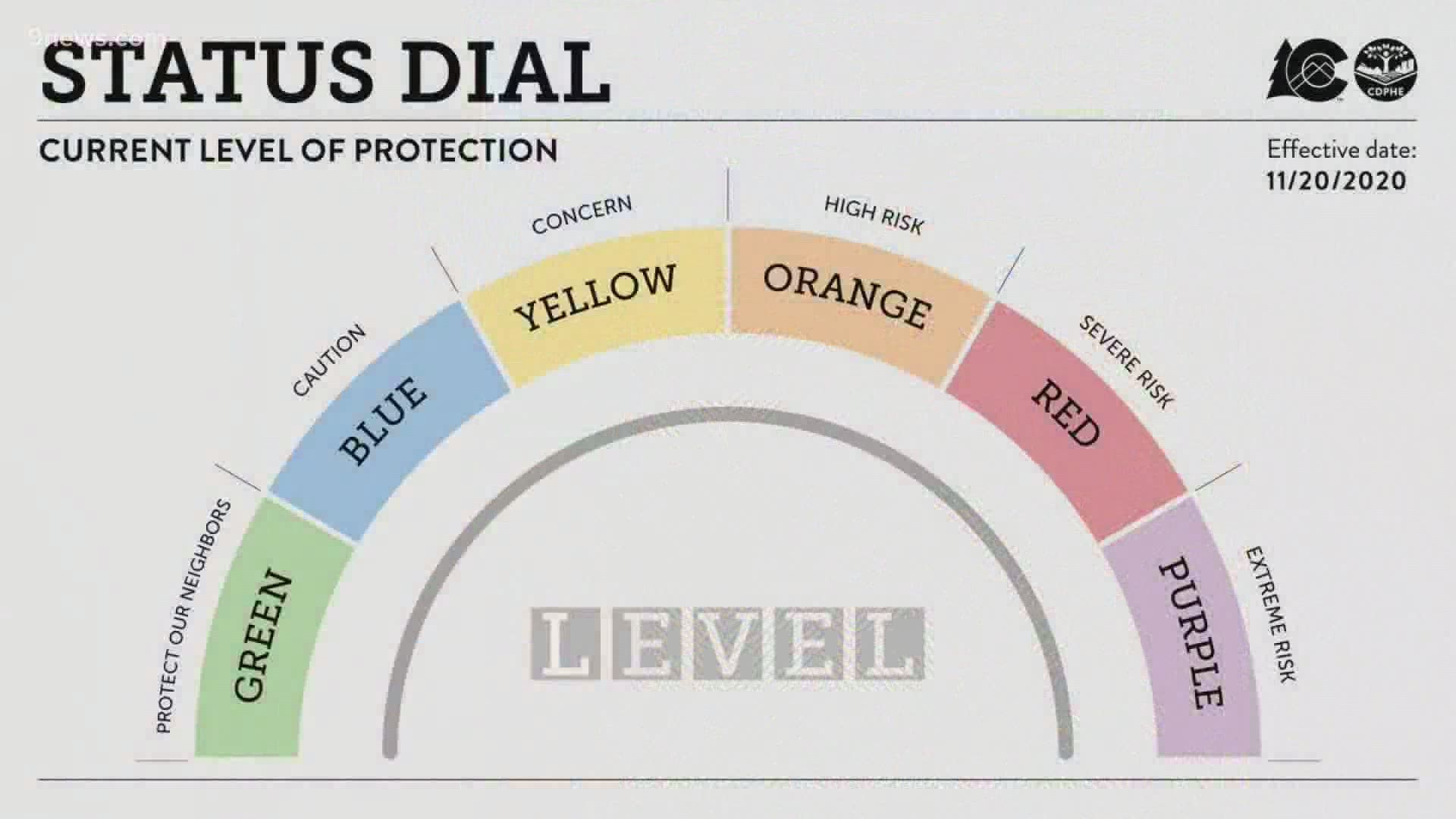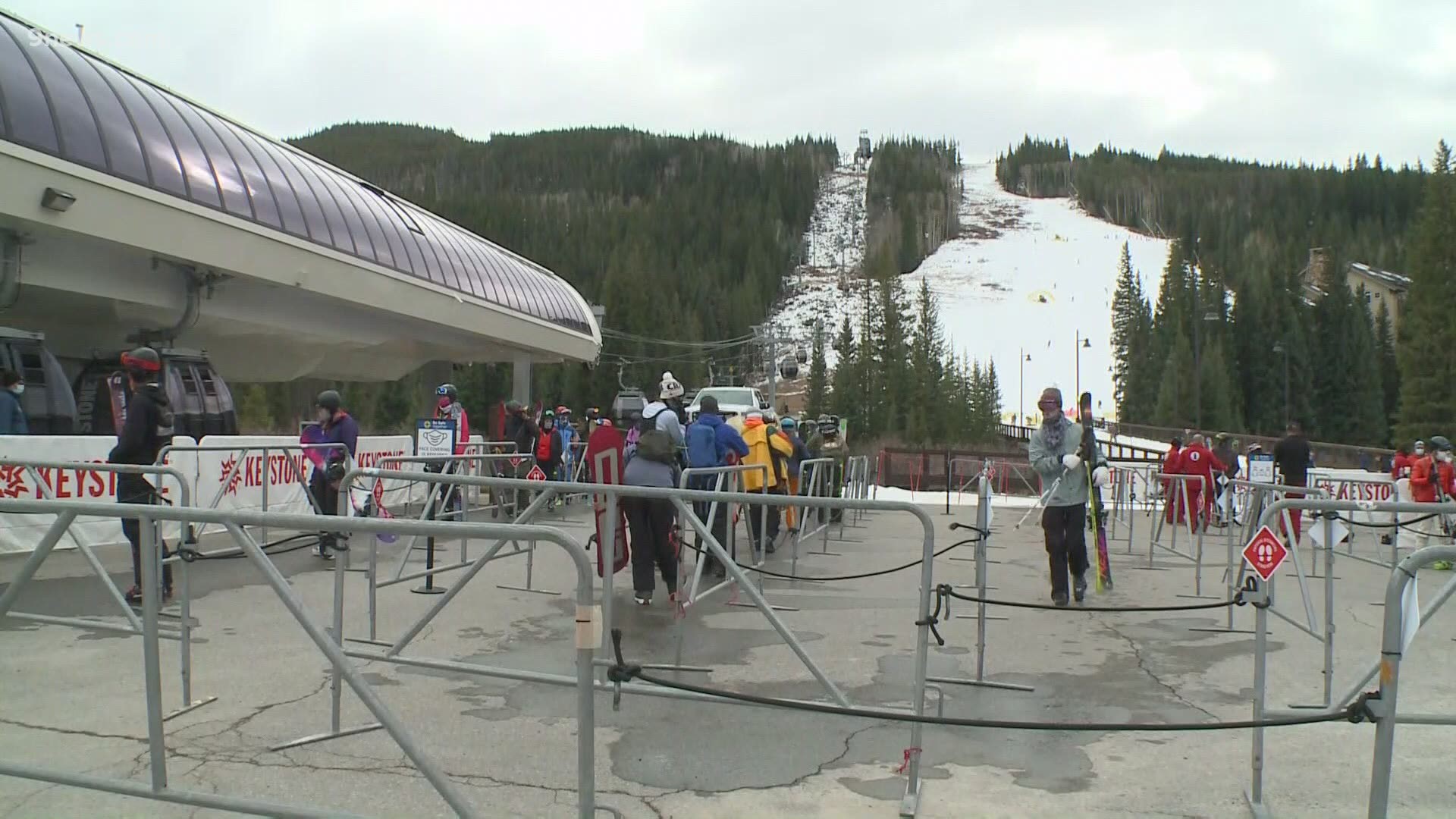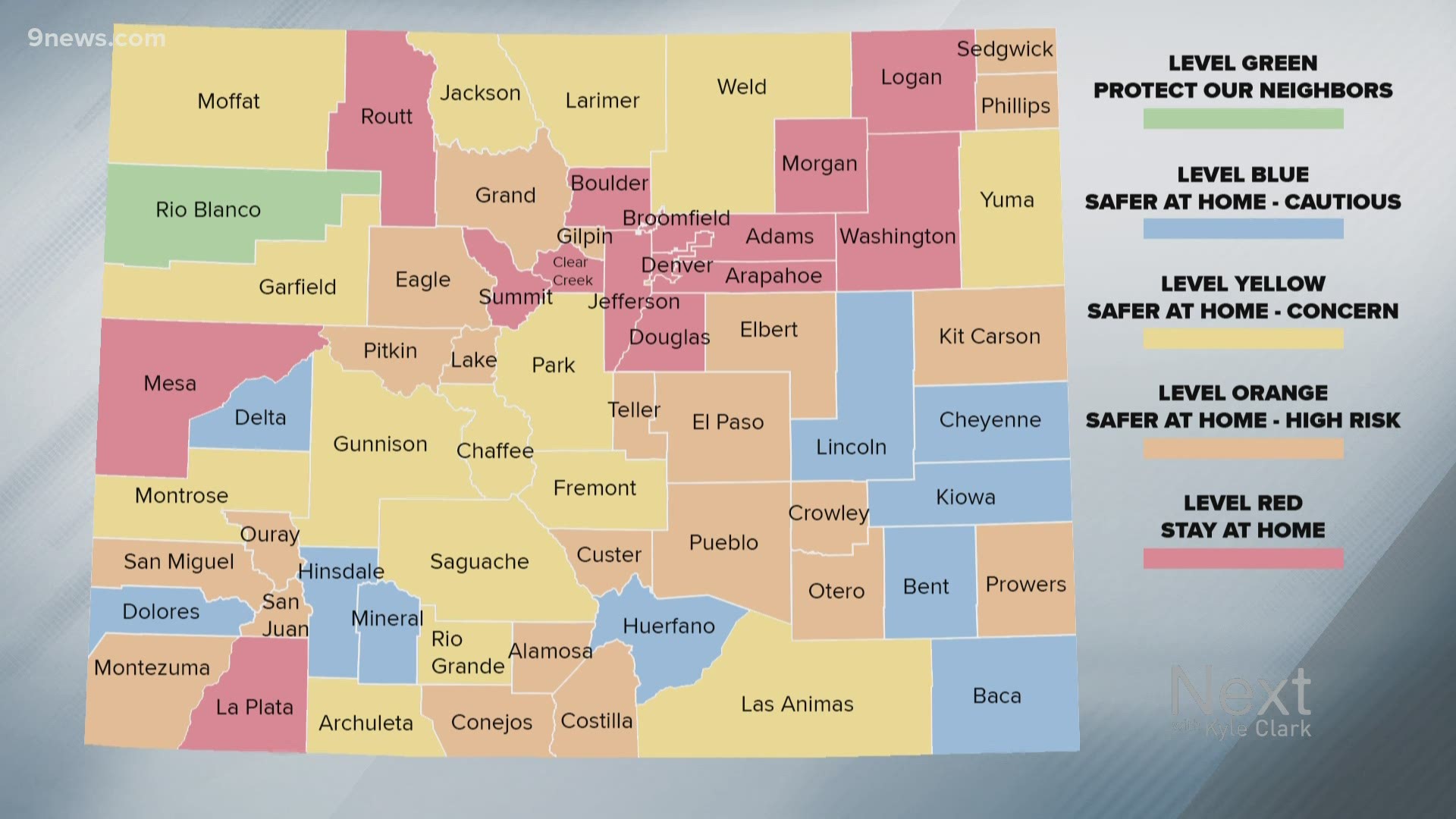DENVER — Fifteen counties, including Denver, moved to stricter COVID-19 restrictions to slow exponential growth of the novel coronavirus on Friday while another seven have moved or will move to those restrictions this week.
"Most people are doing their part," Polis said. "But the truth is, seeing this exponential growth, we clearly need a more drastic shift in behavior to further slow the transmission of the virus."
The initial announcement was made during a Tuesday afternoon news conference with Denver Mayor Michael Hancock and multiple members of the state legislature.
The counties that moved to higher restrictions on Friday, according to the city mayors and health departments, were the following:
- Adams
- Arapahoe
- Boulder
- Broomfield
- Clear Creek
- Denver
- Douglas
- Jefferson
- La Plata
- Logan
- Mesa
- Morgan
- Routt
- Summit
- Washington
Five additional counties moved to the tighter restrictions on Sunday, Nov. 22:
- Alamosa
- Otero
- Prowers
- Pueblo
- Weld
On Monday, Nov. 23, another county was moved to Level Red:
- El Paso
On Tuesday, Nov. 24 one additional county will also be moving to Level Red:
- Larimer
In counties that are in that level, all restaurants will have to temporarily close to indoor dining, but takeout is still an option, Polis said. Outdoor seating is also an option but is limited to single-family seating, not groups. Last call will be at 8 p.m.
Gyms will be able to remain open but will be limited to 10% capacity with reservations.
Ski resorts will be able to operate under level red, but under stricter restrictions such as no indoor dining, and lower capacity in buildings, according to CDPHE.
CDPHE said the dial level does not specifically affect ski resort on-mountain operations.
Loveland Ski area updated the guidance on their website today to "No food or beverage services as of 11-20-2020 by order of CDPHE."
Loveland also released this statement on their Facebook Page: "The Colorado Department of Public Health and Environment has issued a Red Level: Severe Risk alert to Clear Creek County. While this state directive still allows us to offer the great skiing and riding we’re known for, it also places new restrictions that may affect your upcoming visit to Loveland Ski Area. As of Friday, November 20, we will no longer be offering indoor dining or bar service at either the Loveland Basin or Valley lodges."
Watch the full news conference below:
"We want to make it clear that there should not be gatherings of people from different households," said Polis. "You should really live and thrive with your bubble, your family for the next several weeks, that's the safest thing you can do."
Previously, red was the strictest level on the state's COVID-19 dial, but now red is considered "severe risk". A new purple level has been added, known as "extreme risk."
In a tweet, the Colorado Department of Health and Environment (CDPHE) said Tuesday that the new dial would go into effect on Nov. 20.
Polis said in-person learning, especially for the youngest students, is still recommended even for those counties who move to the new red level.
"We encourage preschools through fifth grade students to continue learning in-person or to restart if the districts have taken a hiatus," said Polis. "We want to make sure we emphasize the need for K-5 to return. We feel that based on the data for many families and many kids, that is the safest place they can be with the safety parameters we have in school."
He said they were working with federal officials to support funding for safety measures to allow schools to reopen safely.
Polis and Democratic leadership in the General Assembly also announced that lawmakers will convene for a special session to pass COVID-19 relief legislation that will boost small businesses, increase access to child care, help Coloradans pay their rent or mortgage and improve broadband options for students in rural communities.
“After passing a robust COVID relief package this spring and working with the governor to provide $375 in one-time support to hundreds of thousands of Coloradans, we’re ready to get back to work to support small businesses and the Coloradans who have been hit hardest by this pandemic,” said Speaker-designate Alec Garnett (D-Denver).
“We need an economic recovery where every Coloradan has a fair shot, but this can’t happen if restaurants and bars close, families lose their homes, students can’t get online, and day care centers shutter.
"We need to act now to bridge the gap where Washington has failed, or our economy will falter.”
Lawmakers will have the option of participating remotely for floor work; there will be limited committee work, and other measures will be adopted to mitigate the risk of a COVID-19 outbreak. Additional tools will be available to enhance safety in the building, such as improved testing protocols and increased social distancing.
As of Monday, there were 1,294 patients currently hospitalized in Colorado, and the seven-day, moving average positivity rate increased to 12.61%, according to the latest data from the CDPHE.
Polis said Tuesday that people between age 40 and 64 make up the largest group of hospitalized patients but those older patients have a higher risk of death. He urged people in at-risk categories to stay at home whenever possible.
Positivity is an important indicator of the status of COVID-19 in the state. The World Health Organization (WHO) in May 2020 recommended that the positivity rate be at or below 5% to contain the virus.
Current hospitalization data are also a key metric because they can be an indicator of whether Colorado’s hospital system is being overwhelmed by the virus. In April, hospitalizations peaked at 888 in one day. That number was surpassed Nov. 5.
SUGGESTED VIDEOS: COVID-19 Coronavirus



